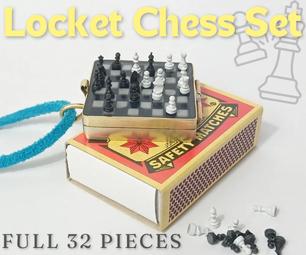Introduction: Custom Soda Cooler
The heat of summer is upon us. So to help beat the heat, today I am going to show you how you can make your own custom soda cooler. As an example I decided to make a cooler that perfectly fits a pack of soda. That way you can take the whole pack out of the fridge, put it directly into your cooler and go.
Step 1: Materials
There are a lot of different styles of cooler. But they all have some common features. First off, there must have a layer of insulating material to keep the drinks cold. Then on both sides of the insulating material you need a layer of waterproof material to keep it sealed. Then you need a method of attaching all the layers together. Lastly, you need a way of opening and closing the cooler.
Waterproof Material: Generally sheets of thin plastic work well. If you want to make a flexible cooler, then I recommend using a material like vinyl. This can be purchased by the yard at fabric stores. You can also use cheap plastic shower curtains or plastic table cloths.
Insulating Material: Any insulating material can work. Flexible foam is probably the easiest to work with. You can probably find a suitable material lying around your house. You can use packing foam, craft foam, or even bubble wrap.
Attaching Material: You can either attach the waterproof material directly to the insulation or you can attach the two outside layers together and create a pocket with the insulation inside. You also have a number of options in how you attach the layers. You can sew the layers together. This is probably the best option. It gives you strong uniform edges. However if you aren't skilled at sewing, you have other options. You can use glue or tape (be sure to use a glue that is designed for the materials that you are using). If you are using plastic, it is also possible to melt the layers together. However this can be quite difficult. It takes a lot of practice to be able to properly melt plastic together without messing it up.You have a lot of options. Feel free to do whatever is easiest for the materials that you are working with.
Opening/Closing Mechanism: The most common methods for closing a flexible cooler are either zippers or Velcro.
You have a lot of options in how you construct your cooler and as a result you have a lot of options when choosing what materials to use. In this example, I am making a flexible cooler with craft foam, a vinyl table cloth, spray glue and Velcro.
Waterproof Material: Generally sheets of thin plastic work well. If you want to make a flexible cooler, then I recommend using a material like vinyl. This can be purchased by the yard at fabric stores. You can also use cheap plastic shower curtains or plastic table cloths.
Insulating Material: Any insulating material can work. Flexible foam is probably the easiest to work with. You can probably find a suitable material lying around your house. You can use packing foam, craft foam, or even bubble wrap.
Attaching Material: You can either attach the waterproof material directly to the insulation or you can attach the two outside layers together and create a pocket with the insulation inside. You also have a number of options in how you attach the layers. You can sew the layers together. This is probably the best option. It gives you strong uniform edges. However if you aren't skilled at sewing, you have other options. You can use glue or tape (be sure to use a glue that is designed for the materials that you are using). If you are using plastic, it is also possible to melt the layers together. However this can be quite difficult. It takes a lot of practice to be able to properly melt plastic together without messing it up.You have a lot of options. Feel free to do whatever is easiest for the materials that you are working with.
Opening/Closing Mechanism: The most common methods for closing a flexible cooler are either zippers or Velcro.
You have a lot of options in how you construct your cooler and as a result you have a lot of options when choosing what materials to use. In this example, I am making a flexible cooler with craft foam, a vinyl table cloth, spray glue and Velcro.
Step 2: Trace and Cut the Insulation
You want the sections of insulating material to be approximately the same dimensions as your soda pack. The easiest way to achieve this is by laying the soda pack on the insulation and tracing the outline of each of the sides. If you are using Velcro to close the cooler, then trace an extra outline of the end of the soda pack. This will give you two end pieces at the opening to fold over and overlap.
Then you need to cut out each section. Depending on the type of insulation use either a knife, scissors or a hot wire to cut out each section.
Then you need to cut out each section. Depending on the type of insulation use either a knife, scissors or a hot wire to cut out each section.
Step 3: Assemble Each Section
Take the insulation cutouts and lay them out on a sheet of vinyl (tablecloth). Apply a generous amount of spray glue. Then apply a second piece of vinyl on top. If you are using vinyl with a fabric liner, then keep the fabric on the inside and the plastic on the outside. Press this and let it dry overnight. Then cut out each section leaving at least one inch of vinyl on each side of the foam.
Step 4: Attach the Sections of the Body of the Cooler
Lay out the sections as they will be assembled. Be careful to match up the edges with equal lengths. If you are using a fridge pack, the side pieces are not the same width and the end pieces are not a perfect square. It is easy to mix them up. Then using glue, tape or a sewing machine attach each of the pieces together. Try to follow the previous seams. Start by attaching all the long side pieces together. Then attach the bottom piece to each of the side pieces.
If you are using glue, it is a good idea to clamp each of the seams as they dry.
If you are using glue, it is a good idea to clamp each of the seams as they dry.
Step 5: Apply a Seam to the Edges of the Top Pieces
You should now have five pieces (four sides pieces and one bottom piece) that are connected on all four sides to another piece. You also have two top pieces. These will be attached at only one side and have 3 open edges each. To make these look a little better, you should take each of the bare edges, fold it over and make another set of seams to hold them down.
Step 6: Attach the Top Pieces
Lastly, you need to attach the two top pieces. Take one top piece and line up the bare edge with one of the edges at the opening of the body. Attach this edge just as you did for all the previous edges. Then repeat this for the second top piece. It should be connected to the side of the cooler opposite of the first top piece.
Step 7: Trim the Seam Allowance
After attaching all of the sections together, you will have a lot of material sticking out at every seam. Trim off this excess so that there is only about 1/4"-1/2" of material sticking out at each seam.
Step 8: Invert the Cooler
Now you have a mostly finished cooler. But it is inside out. So you need to carefully invert the cooler. If you are worried about breaking a weak seam, then you can clamp them together with binder clamps before inverting the cooler.
Step 9: Attach the Velcro
The last step is to add a strip of Velcro so that the cooler can be sealed. Apply one half of the Velcro strip to the top side of one of the opening flaps. Apply the other half of the Velcro strip to the bottom side of the other opening flap.
Step 10: Finished Cooler
Now you have your own custom cooler. Whenever you want to take some sodas with you, you can take the whole pack of soda out of the fridge and place it directly into your cooler. Or you could put the cooler full of soda into the fridge so that the cooler itself is cold as well. If you want to be able to use ice packs in your cooler, just make the cooler a little bit longer so that there is enough space inside.

Runner Up in the
Craft Contest











